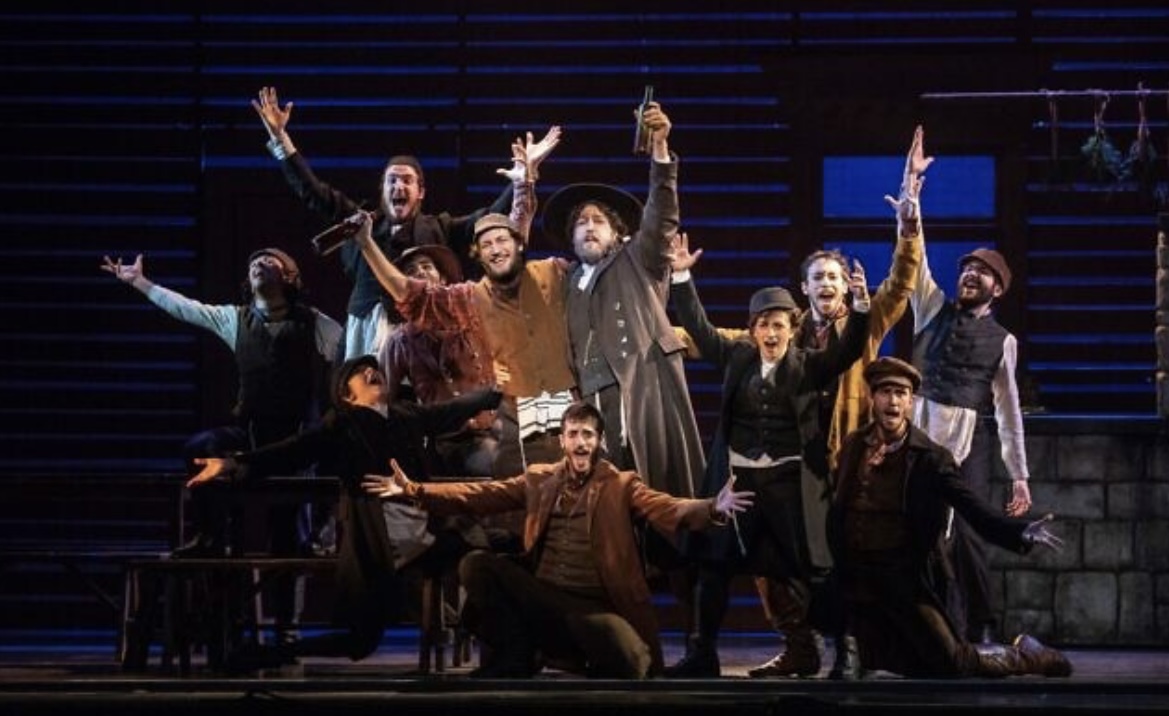On Friday, November 12, I saw “Fiddler on the Roof” at the Fox Theatre, a story about traditionalism versus change. It was originally a Broadway musical, one many people would consider iconic because of its multiple awards and phenomenal reviews. In the beginning of the story, the most pressing problem of change was marriage, with Tevye’s (Yehezkel Lazarov) first daughter, Tzeitel, (played by Kelly Gabrielle Murphy), wanting to marry someone who would offer no financial benefits to the family.
In the context of the musical, marriages were arranged and were often financially oriented, meaning the reasons for marriage were typically to benefit the entire family and not for love. The thought of the daughter choosing who she would marry was absurd and unheard of. This happened two more times to Tevye throughout the musical — a total of three out of his five daughters were yearning for something more.
To me, it seemed the musical became more drastic as time progressed. It started quite simply, with troubles you could see in any historic movie. Later, though, it began to go deeper, discussing idealism, religious faith, greed, and so much more.
While it’s true that I loved the music (written by Jerry Bock with lyrics by Sheldon Harnick), aside from leitmotifs (recurring themes throughout music), it honestly wasn’t the biggest part of the experience for me. The portrayal and exploration of different and new ideas were!
I’d entered the musical blind — the only thing I knew about it is that the choreography was amazing (courtesy of my friend who’d seen it the day before I had). So understandably, I thought the fiddler was going to be an important, tangible character.
I expected the show to be about breaking norms and expectations in favor of passion, and in a way, it was. The only thing that strayed from my expectations was that the fiddler himself wasn’t a character, he instead represented that change, sort of a motif in himself. And I, for one, thought it was brilliant.
I’d never thought of using a person as a motif, and I don’t think I‘ve ever seen it in media, either, so the musical’s portrayal of change was refreshing and interesting to see. When something was shifting, such as the main character, Tevye and his view of things or life itself, the fiddler would appear in the background. Sometimes he was just drifting there like a watchful ghost, sometimes he would play a piercing melody. Either way, you knew something was up. This struck me as devastatingly creative. At the beginning of the musical, someone says, “Without our traditions, our lives would be as shaky as a fiddler on the roof,” which I think explains the narrative purpose of the fiddler very well.
Overall, the musical stuck out to me as a very creative take on discussing change. The narrative was excellent and flowed perfectly, and what wrapped it all together was the music and yes, the amazing choreography, recreated by Christopher Evans. (seriously. I was not disappointed!) If you’re looking for a musical that is meaningful and creative, as well as funny and entertaining, this is definitely your show!
VOX ATL teens had the opportunity to attend “Fiddler on the Roof” at the Fox Theatre, thanks to the generosity of Most Valuable Kids of Greater Atlanta.





BEST ARTICLE HERE BY A LONG MILE
Oh, your wonderful noting of the phrase, “Without our traditions, our lives would be as shaky as a fiddler on the roof,” captures the the essence of the play – along with the pitfalls it entraps in our contemporary society. When our ancestors can dictate our current lives through traditions, we create a “democracy of the dead”, enslaving our beliefs into archaic paradigms. So, when should we part with our parents’ traditions? Very nice review and great that you formed your understandings without knowing details of the play before attending.